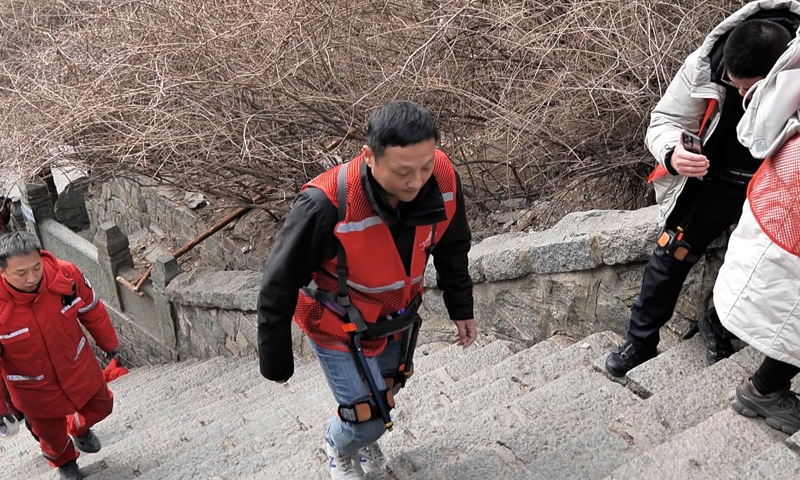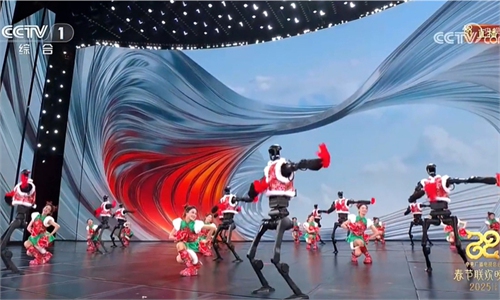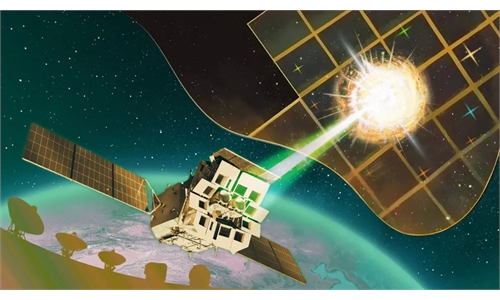
A hiker wearing a robotic exoskeleton while climbing the Mount Tai scenic area in Tai'an, East China's Shandong Province Photo: Xinhua
A hiking-assist exoskeleton robot made its trial debut at Mount Tai scenic area in Tai'an, East China's Shandong Province, during the recent Chinese New Year holiday, offering climbers a groundbreaking way to scale the iconic peak. The company involved in the robot's development said that this innovative device showcased impressive efficiency in reducing physical exertion, allowing hikers to comfortably ascend from the mountain base to the iconic Nantian Gate, one of the highest points of Mount Tai, with just one battery replacement during the climb.
This exoskeleton robot is jointly developed by the Taishan Cultural Tourism Group and a high-tech company headquartered in Shenzhen, South China's Guangdong Province, Xinhua reported.
Weighing just 1.8 kilograms, this robot features an advanced ergonomic design and incorporates core technologies such as power systems, electronics and AI algorithms, said Xinhua.
Yu Yunbo, the manager of Kenqing Technology, co-producer of the exoskeleton robot, told the Global Times that after processing through the AI processor, the robot's legs move in sync with the human legs, which enhances the tourist's leg strength. This synchronization can significantly boost human physical capabilities, potentially reducing the energy expenditure of walking by over 30 percent.
"In climbing conditions, it has a battery life of approximately two and a half to three hours, effectively reducing the burden on visitors by around 10 kilograms." Yu said.
This product is versatile and accessible to all, including the elderly, enabling them to enjoy outdoor activities with the assistance of the robot, according to Yu. Moreover, it is lightweight and sufficiently intelligent, allowing it to adapt to any body type and walking style without affecting its assistance.
"Wearing this robot made the climb much easier on my legs. It felt like it was lifting my legs," said a visitor, adding that using this robot makes climbing even easier than walking on flat ground, as reported by Xinhua.
In the future, if this robot becomes more advanced and is implemented here, it will be incredibly useful for those who don't hike often, according to the visitor.
Yu said that the robot is expected to be launched in the market between late March and early April. Once officially in use, it will be available for tourists to rent at Mount Tai, with rental prices ranging from 60 to 80 yuan ($8 to $11), depending on the distance.



